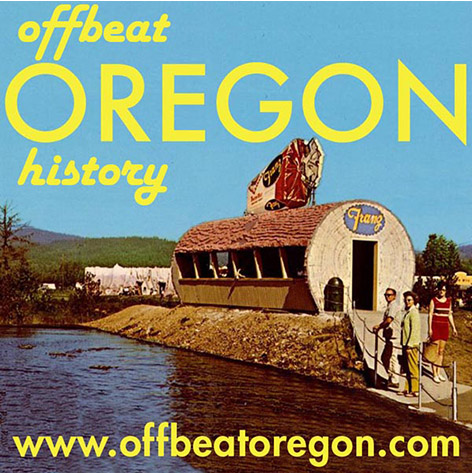
Looking for more?
On our Sortable Master Directory you can search by keywords, locations, or historical timeframes. Hover your mouse over the headlines to read the first few paragraphs (or a summary of the story) in a pop-up box.
... or ...
PORTLAND, MULTNOMAH COUNTY; 1880s, 1890s, 1900s:
John H. Mitchell, Oregon’s own Snidely Whiplash
Audio version: Download MP3 or use controls below:
|

Both Carutherses subsequently died, with no known heirs and no will. Mitchell and some promoter friends saw their chance. They went on a hunt for a man who answered to the name of Joe Thomas — the name of Elizabeth Caruthers’s vanished husband — who would be willing, for a fee, to swear to be the Joe Thomas, the missing husband himself. They found such a man in St. Louis. Although his real name turned out to be John C. Nixon, he was willing to lie about that, which was good enough to get the job done. Nixon was brought to Portland, where he was sworn in and faithfully did his bit of perjury. Then, after receiving an $8,000 payoff for his services, he deeded the land over to Mitchell’s group. Easy money. The Hon. John H. Mitchell, U.S. SenatorBy the 1870s, Mitchell knew well how profitable it could be to mix business and politics. He’d gotten himself elected to the state senate in 1862, almost immediately upon arriving in the state. Ten years later, he was able to clinch the prize he was really after: A seat in the U.S. Senate. At that point, though, he was nearly undone by a blast of karma. It had come to the attention of his political enemies that he’d abandoned most of his first family in Pennsylvania, was living under an assumed name, and was a bigamist. Luckily for Mitchell if not for his adopted state, the Senate decided these things weren’t deal-killers, and seated him — whereupon he embarked on a 30-year run of deviousness and influence-peddling and chicanery that would leave the state, overall, somewhat worse for wear — although he did accomplish some notable good things for the state. His efforts got the Cascade Locks funded, as well as a number of Oregon’s complement of life-saving lighthouses. However, Mitchell worked tirelessly to promote the interests of his clients in Washington, including Ben Holiday and, later, the Southern Pacific Railroad. He also never seemed to weary of trying to get the federal government to renege on treaties made with South Coast Native American tribes, whose heavily timbered lands development companies coveted. But he’s best known today for his part in one of the biggest land swindles of American history — and his role in that swindle would finally bring him down. (There's a whole Offbeat Oregon article about that land swindle, which you'll find here; but, here's the short version:) Mitchell’s fallIn the early years of the 1900s, federal public lands in Oregon were available to individual homesteaders in 160-acre chunks for a tiny fraction of their true market value — $2.50 an acre. Large timber companies like Booth-Kelley and Weyerhaeuser wanted to buy vast swaths of it, and felt they should be free to do so — but they weren’t. So they simply made arrangements with “front men,” often hobos, who would file a claim on 160 acres, pay the $400 for it with company money, and sign it over to the big outfits. In the process of making these arrangements, the companies got some help from Mitchell. And when a federal investigation by Theodore Roosevelt appointee Francis Heney started looking into the matter, it was all over for the white-bearded Grand Old Man of Oregon politics. Mitchell was convicted and sentenced to serve six months in prison and pay a $1,000 fine — which sounds beefy in 1903 dollars, although the bribe he was being convicted of taking was twice that. In any case, he died from a dental abscess while the case was on appeal, so he never actually served any prison time. To this day, he’s one of only five Senate members in U.S. history who have been convicted of a crime while in office. And as far as I know, he is the only U.S. Senator who has ever served in the Senate under an alias adopted while on the run from the law.
|
©2008-2023 by Finn J.D. John. Copyright assertion does not apply to assets that are in the public domain or are used by permission.



